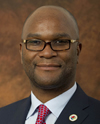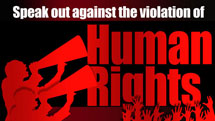By Minister Nathi Mthethwa

The first two months of the year have seen racism rear its ugly head, particularly on social media and our universities. These incidents are not only a reminder of our painful past but threatens our ideal of a non-racial, non-sexist democracy.
There has also been increased tension between those who desire transformation and those who want to perpetuate the status quo. In the process, opportunists have had a field day, resorting to violence and jostling for centre stage.
We are conscious that our history has bequeathed us the fruits of democracy after a long liberation struggle, and a quest for true equality evidenced in the words of the Freedom Charter and upheld in the Constitution adopted in 1996 and proudly 20 years old.
However, history has also thrust upon us its dastardly alter ego, the remnants of a racist ideology that seeks to perpetuate itself with its horrors, vested privileges, embedded interests, in a country fraught with the effects of the economic, social and cultural divisions imposed by centuries of colonialism, segregation and apartheid.
In the words of President Jacob Zuma during his State of the Nation Address, “there is a need to confront the demon of racism’’. He called on South Africans to commemorate this year’s Human Rights Day as a national day against racism and use it to “lay the foundation for a long-term programme of building a non-racial society’’.
This day, seeking to promote respect for basic human rights and honouring those who fought for our freedom, commemorates the Sharpville massacre and the march in Langa in 1960.
In Sharpeville, police opened fire on unarmed people who had gathered at the police station to protest against pass laws passed by the then apartheid government. Sixty-nine people died on that day while 180 were injured.
On the same day, the apartheid police killed two and injured 28 people in Langa who had also gathered to protest against pass laws. The Sharpeville Massacre and the Langa march marked a turning point in the country.
Not only did they triggered protests in the country and draw worldwide condemnation, but these events also demonstrated the inhumanity of the apartheid system and its functionaries and therefore intensified support for an anti-apartheid movement worldwide.
This year the government will host various activities throughout the Human Rights Month to unite the nation against racism and partner with specialised bodies to combat racism, culminating in a national commemoration in Durban under the theme: “South Africa united against racism”.
This month-long commemoration provides an opportunity for all of us to pledge our allegiance against racism to work towards a truly non-racial society. Racism is not merely prejudice: it is both ideological and systemic. It manifested itself in almost all institutions of society under apartheid. Hence we also refer to racism in the context of our history of institutionalised racism.
Thus the building of a non-racial society is not an easy task. It requires a change in mindsets, a willingness to think before one acts, an embrace of the basic dignity of all people and a commitment to equality and inclusivity. Racism goes against what we have fought for, which is the principle of equality, the right to be treated without discrimination and to be given equal opportunities.
In addition to existing laws and policies, which address equality and discrimination, a National Action Plan to combat racism, racial discrimination, xenophobia and related intolerance has been developed.
The plan will also allow us to monitor ongoing incidents of racism through the establishment of a rapid response team reporting directly to government. Sectoral meeting will take place so that each sector in society can make its own contribution. These dialogues will culminate in a national convention and a social compact on nation-building, social cohesion and the eradication of racism.
As South Africans we should defend human rights as enshrined in the Bill of Rights. We need to remind ourselves and be armed with the Bill of Rights that ensures that everyone is equal before the law, has the right to equal protection and freedom of movement and of expression, as well as to reside wherever they choose. Everyone has the right to use his or her language and to participate in the cultural life of choice.
We should keep in mind that when racial tension develops in one institution or province, it doesn’t affect only that area, but it affects us all. It is imperative that we say no to racism. And transformation – whether in our higher education landscape, in our heritage landscape or through striving to deracialise our economy – is not optional but essential.
Nathi Mthethwa is the Minister of Arts and Culture.





